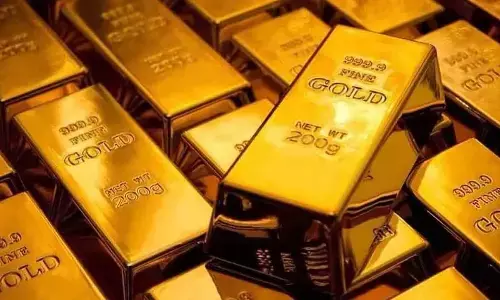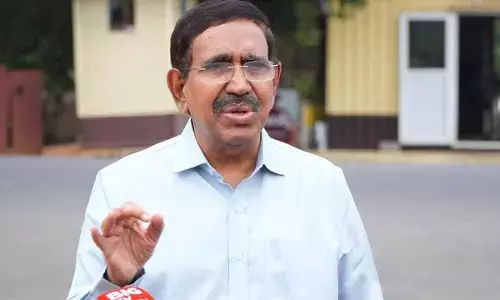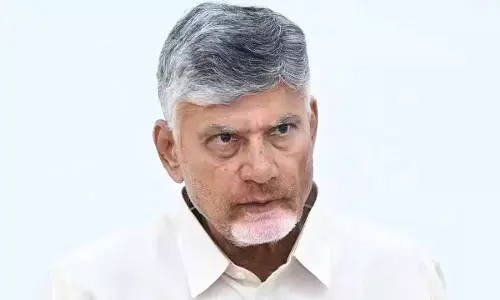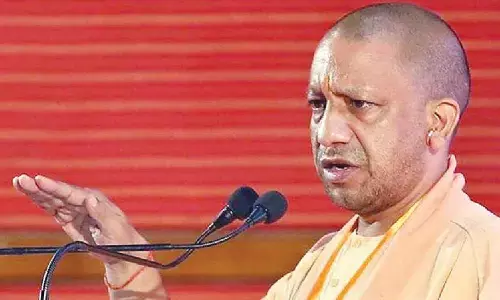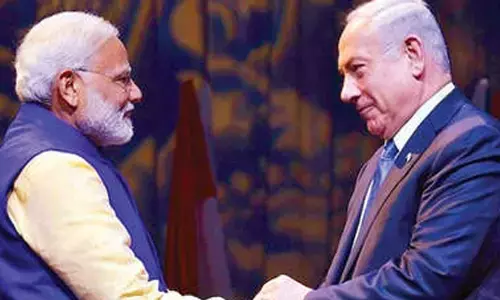India, China In Emerging Geopolitics
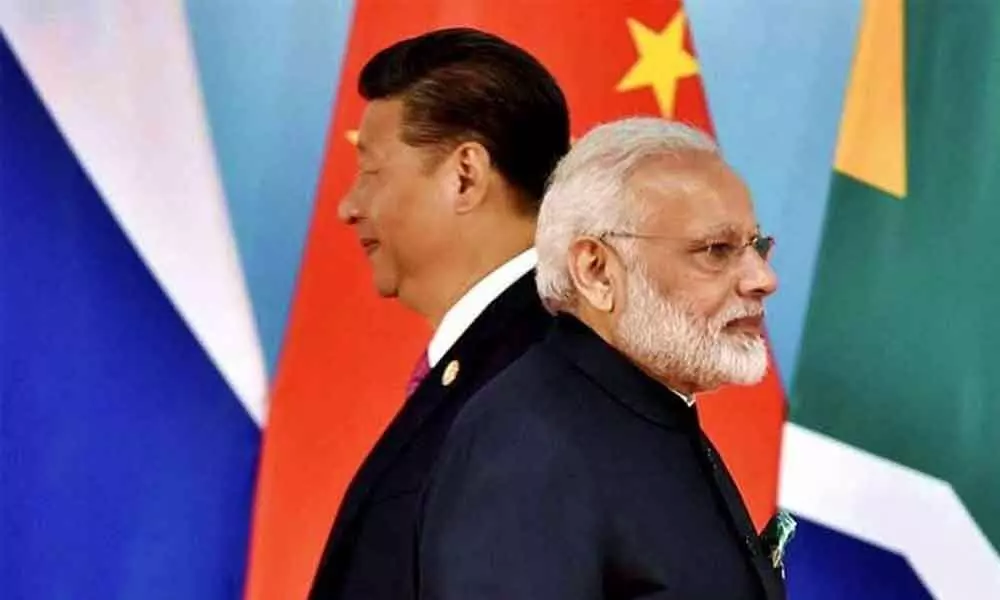
India, China In Emerging Geopolitics
The advent of Biden presidency with its resonating calls of 'America is back,' 'we will repair our alliances' and 'will engage with the world once again' on one hand and the rise of President Xi Jinping with a stronger hold on China after the plenary session of the 19th Central Committee of CPC, on the other, have got strategic analysts to examine if a new Cold War is already on the horizon.
The advent of Biden presidency with its resonating calls of 'America is back,' 'we will repair our alliances' and 'will engage with the world once again' on one hand and the rise of President Xi Jinping with a stronger hold on China after the plenary session of the 19th Central Committee of CPC, on the other, have got strategic analysts to examine if a new Cold War is already on the horizon.
India has to define its stand and negotiate its international policy keeping in view the nation's best interests of the long run. Sino-Pak military alliance that chiefly worked against India, natural friendship between the two largest democracies of the world and the need for a rapid advancement of our defence capabilities are the major paradigms that should determine India's approach to both development and security.
Xi Jinping is implementing a two-fold strategy of seeking the economic route to becoming the second superpower and pursuing 'Sinicisation of Marxism' to define the future of Communist China. In a huge give and take between the Godless dictatorship of China and the fundamentalist regime of Pakistan, the former has invested on CPEC located on the territory of PoK ceded by Pakistan to China in the face of the Indian protests and got an opening into the Muslim world where sympathy for Islamic radicals has been on the rise.
Pakistan is close to the pro-US group led by Saudi Arabia and yet has a good equation with Islamic radical organisations represented by Taliban. With one leg in the camp of 'revivalists' – Pakistan – it mediated between the US and the Taliban on Afghanistan – would be in a position to assure the Chinese that the Cold War game of the West using Pak-Afghan region to 'radicalise' Muslims of Xinjiang and other parts of China, would not be allowed. The axis of the two principal adversaries of India has become very active after the Indian Parliament scrapped Article 370 of the Constitution in August 2019 and converted J&K and Ladakh into union territories. India had successfully evolved a strategy of dealing with both China and Pakistan together.
Xi Jinping combines the persona of Deng and Mao Zedong and while consolidating Chinese economy further, he has reverted to the concept of supremacy of the Communist Party of China as the symbol of Marxism. This has helped him, among other things, to keep his leadership going on the strength of ideology and project it as something that was free of any personal vested interest.
Sino- Pak strategic alliance – an illustration of this multi-prong objective of China – is a cause for great concern for India. China knows it cannot change the Western systems and is not in a hurry to challenge the global economic order – it is exploring alternate approaches of invading others economically and doing it successfully. As far as territorial expansion is concerned, Xi's China adheres to its known 'two steps forward one step backward' strategy – which is salami slicing of sorts – that was in evidence on LAC as also in the Indo-Pacific. India has suitably responded to these moves on land as well as on sea by undertaking a matching military build-up and actively joining in Quad, respectively.
It is remarkable that a Communist dictatorship carrying the stamp of Marxism today is deriving strength from the country's civilisational roots. This reflects the desire for world domination – the Emperor of China expected 'tribute' from other countries as protection money. China's move forward is neither transactional nor transformational but a strategy of continuum – steady in pace and direction – attempted on a good understanding of the global 'space' on land, sea and air. Geo-politically China is now in the frame so far as the emerging scene of the world getting divided between two superpowers is concerned.
India has set in motion a well-considered strategy of handling the economic and security challenges emanating from this situation. There was never any doubt that the US and India must together anchor the collective effort of the democratic world to counter the threat from the Communist dictatorships on one hand and that from Islamic extremists on the other.
The policy of the Modi government to have bilateral relations on the basis of mutuality of interests in the economic and security spheres has been very successful. India is enlarging the ambit of friendships with European democracies, Australia, Japan and Israel – including association with Quad – to promote collective security against these dangers. As a nation with a voice in the global matters pertaining to war and peace, India is working for self-reliance in the area of defence and building military strength to take on any aggressive move of the PLA on the LAC and punish Pakistan for any provocation from across the LOC.
India has maintained close friendship with Russia which has – apart from defence deals with India – been on the same page on the vital issues of Afghanistan and radicalisation. It is the policy of mutuality of security interests in Afghanistan that has made India work in collaboration with Iran, notwithstanding the conflicts that this country had with the US and Israel. Indian diplomacy has worked hard to keep the Western powers convinced of the legitimacy of India's policy towards all these other countries.
A new dimension of the domestic scene of India is the rise of civil society forums which in collusion with anti-India lobbies abroad and elements hostile to the Modi government at home, play politics by proxy on issues ranging from Kashmir to Northeast and from safety of Dalits and minorities to poverty alleviation. Fortunately, we are getting adequate Intelligence to draw a line between genuine protests and sponsored agitations.
(The writer is a former Director of Intelligence Bureau; the views expressed are personal)


